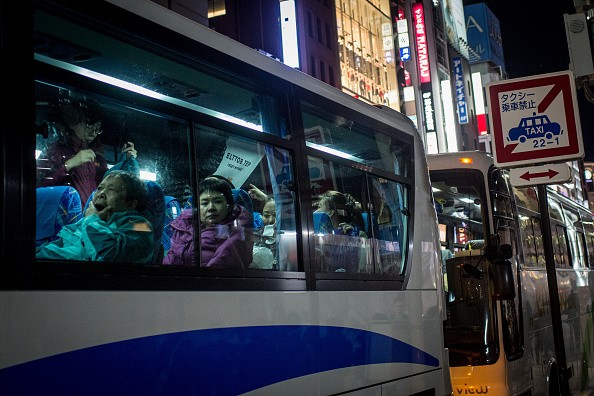The Chinese New Year holiday gave several mainlanders the chance to relax and unwind away from home. While some have traveled to domestic locations for hometown visits, others have gone overseas--Japan being among their favorites.
Airline officials anticipate more mainlanders to enter Japan beyond Feb. 2, the last official day of the Chinese New Year holiday. Several flights from China to major Japanese cities such as Tokyo and Osaka have been fully booked, The Japan Times reported.
Japan has been largely favored by Chinese travelers in recent times, despite the country being at odds with China diplomatically. In 2016, more than six million mainlanders visited Japan, making them the country's top source for foreign tourists.
Shanghaiist reported that Japan is the second-most popular country for the over-six million mainlanders traveling outside China during this year's Chinese New Year holiday. The country is set to benefit much from the aggregate $14.3 billion mainlanders are set to spend overseas.
With over 2.98 billion trips set to be made for this year's Chinese New Year holiday as previously reported by Yibada, mainlanders are set to share the spoils of China's booming economy overseas. Such has been the case for Japan, where Chinese tourists spend most of their time shopping.
Although the trend of "bakugai" (explosive shopping) among Chinese tourists have faded quite recently, Japan continues to benefit from them in the form of moderate shopping for reasonably-priced goods. The country's proximity to China makes that trend even more probable.
Nonetheless, Japan's diplomatic tensions with China continues to be a reckonable factor as far as tourism is concerned.
Just recently, the Chinese government called for a boycott of Japanese hotel chain APA for its refusal to remove copies of a controversial book on Sino-Japanese history from its rooms.
The book, which denies Japan's involvement in the Nanjing Massacre during World War II, is among the examples of publications contested by the Chinese government. The Japanese government has long been accused of tolerating historical revisionism over its violent past with China.



























